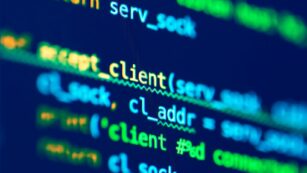Diving into the world of Python programming opens up a landscape brimming with opportunities to enhance skills and tackle real-world problems. For those who’ve moved past the basics, intermediate Python projects are the perfect next step. They bridge the gap between foundational knowledge and advanced expertise, providing a platform to apply what’s been learned in a practical, engaging manner.
Python Projects For Intermediate
What Defines an Intermediate Level in Python?
 Intermediate level Python programming signifies a stage where developers possess foundational knowledge and are ready to tackle more complex challenges beyond basic syntax and simple scripts. At this level, individuals implement structured solutions and understand not just “how” to write the code, but also “why” it works in a particular way. Intermediate programmers can navigate through libraries and frameworks and utilize tools such as Git for version control or virtual environments for project isolation. They explore error handling, data structures, and object-oriented programming with an increased focus on writing more scalable and efficient code.
Intermediate level Python programming signifies a stage where developers possess foundational knowledge and are ready to tackle more complex challenges beyond basic syntax and simple scripts. At this level, individuals implement structured solutions and understand not just “how” to write the code, but also “why” it works in a particular way. Intermediate programmers can navigate through libraries and frameworks and utilize tools such as Git for version control or virtual environments for project isolation. They explore error handling, data structures, and object-oriented programming with an increased focus on writing more scalable and efficient code.
Skills Required for Intermediate Python X Projects
Thriving in Python projects for intermediate levels requires a blend of technical and problem-solving skills. First, a strong grasp of Python’s core concepts, including conditional statements, loops, functions, and basic data structures like lists, tuples, and dictionaries, is essential. Secondly, knowledge of more complex data structures such as sets and data frames enhances a programmer’s ability to manage and analyze data effectively.
Intermediates should be proficient in understanding APIs and libraries like Pandas for data manipulation or Flask for web development. Additionally, version control with Git is critical to track changes and collaborate in team settings. Debugging skills and basic knowledge of unit testing ensure code reliability and effectiveness before deployment. As intermediates progress, their capacity to integrate these skills solidifies their expertise, preparing them for more advanced Python projects and roles within the tech industry.
Popular Python Projects for Skill Enhancement
Building a Web Scraper
 Engaging in a web scraping project enhances understanding of HTTP requests and data parsing. Intermediate programmers often use libraries such as BeautifulSoup and Scrapy, which facilitate the extraction of data from web pages. This project illustrates how one can collect data programmatically from the internet, which is crucial for tasks like competitive analysis or gathering social media insights. For instance, scraping weather data can help in analyzing climate trends.
Engaging in a web scraping project enhances understanding of HTTP requests and data parsing. Intermediate programmers often use libraries such as BeautifulSoup and Scrapy, which facilitate the extraction of data from web pages. This project illustrates how one can collect data programmatically from the internet, which is crucial for tasks like competitive analysis or gathering social media insights. For instance, scraping weather data can help in analyzing climate trends.
The practical experience gained from a web scraping project confirms an intermediate programmer’s ability to handle text data, navigate web structures, and use APIs effectively. This task also necessitates an understanding of web technology basics like HTML and CSS selectors, bridging the gap between simple scripts and real-world applications.
CRUD Applications With Flask or Django
 Creating CRUD (Create, Read, Update, Delete) applications with Flask or Django represents a significant leap towards full-stack development. These frameworks equip Python programmers with the tools to build and manage dynamic websites. Flask, known for its simplicity and fine-grain control, is suitable for smaller projects or microservices. Django, on the other hand, provides a more comprehensive solution with its built-in features for dealing with databases, forms, and authentication systems.
Creating CRUD (Create, Read, Update, Delete) applications with Flask or Django represents a significant leap towards full-stack development. These frameworks equip Python programmers with the tools to build and manage dynamic websites. Flask, known for its simplicity and fine-grain control, is suitable for smaller projects or microservices. Django, on the other hand, provides a more comprehensive solution with its built-in features for dealing with databases, forms, and authentication systems.
A CRUD project could involve developing a blog platform or a product inventory system. Such applications require intermediate knowledge of database management, server-side logic, and client-server interaction. Proper implementation ensures programmers can design systems that handle data persistence and web interfacing, skills highly sought after in technology roles.
Project Ideas to Master Python
Tackling intermediate Python projects is a pivotal step for programmers looking to elevate their coding skills. By engaging with projects like web scraping and CRUD applications, they not only refine their understanding of Python but also gain practical experience that’s crucial for tackling more complex challenges in the tech industry. As they navigate these projects using tools like Git and libraries such as Pandas and Flask, they become adept at writing scalable and efficient code. This hands-on approach ensures that intermediate programmers are well-prepared to advance their careers and contribute significantly to their field. By continuously applying and expanding their knowledge through these projects, they set the stage for success in advanced programming and beyond.


